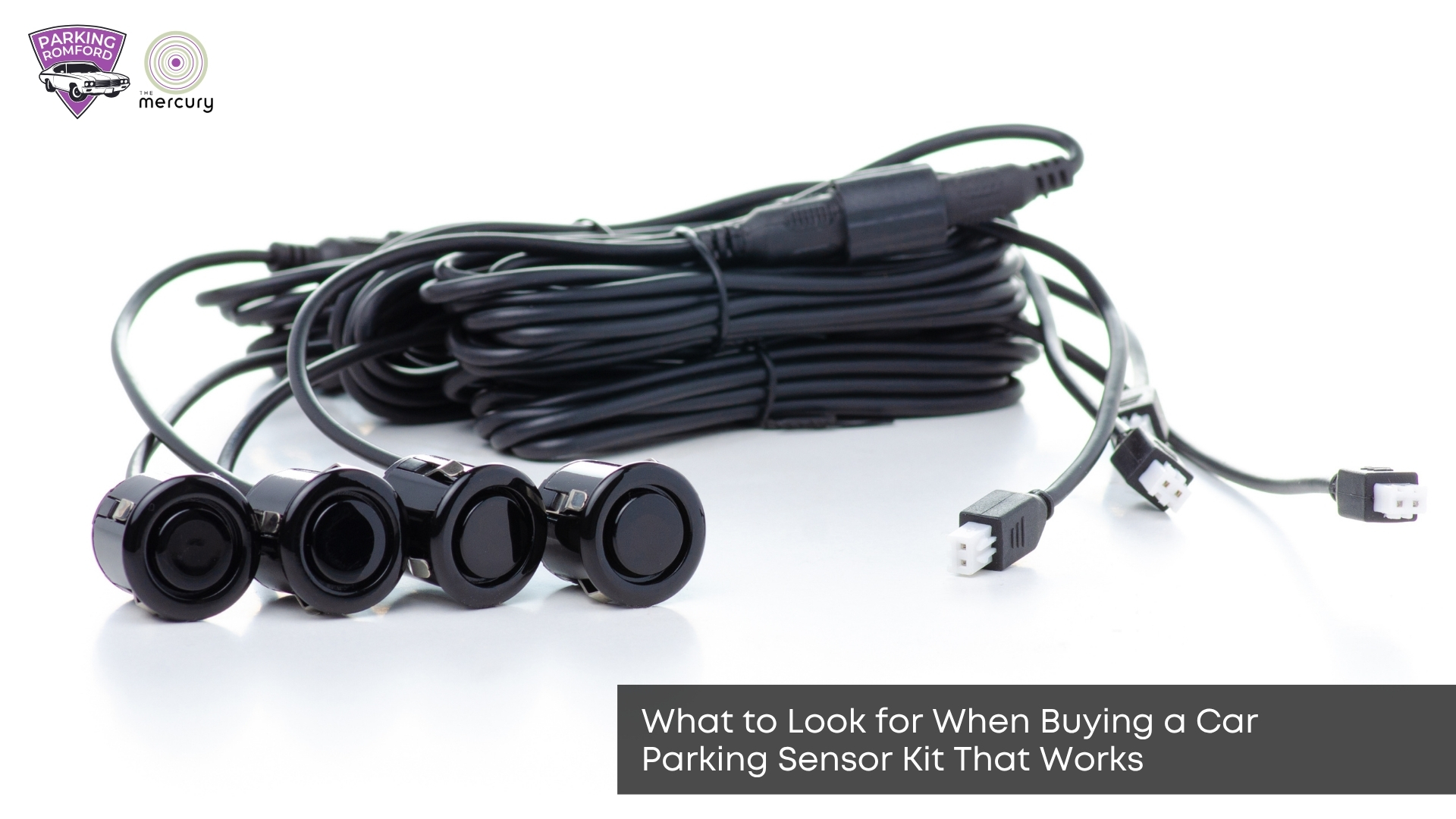Choosing the right car parking sensor kit can make driving and parking safer, easier, and less stressful. With numerous types of kits available, it’s helpful to know what to look for before making a decision. Whether you want to avoid bumps or feel more confident when reversing, understanding your needs is the first step towards achieving this goal. This article explains the key features, options, and tips to help you find a parking sensor kit that truly works. Let’s start with the basics to help you narrow down your options.
What Is a Car Parking Sensor Kit and How Does It Work?
A car parking sensor kit utilises sensors, typically located in the front or rear bumper, to detect nearby objects while parking. The sensors send signals to a control unit, which alerts you with a beep, tone, or screen when something is nearby. These kits are designed to help prevent accidents and make parking in tight spaces easier. Some also show visual cues, which can be useful for more accurate distance judgement. Once you understand how the kit works, it becomes easier to determine the type of setup that suits your car.
Do You Need Front, Rear, or Both Types of Sensors?
The type of sensor you need depends on how you use your vehicle and where you park most often. Rear sensors are ideal for reversing into tight spaces and avoiding low obstacles behind your car. Front sensors are useful when parking in narrow spots or pulling up close to walls or kerbs. Some kits offer both, giving you full coverage and peace of mind. The more coverage you want, the more features and budget you’ll need to consider. That decision also depends on whether you prefer a wired or wireless system.
Are Wired or Wireless Parking Sensors Better?
Wired sensors are often more reliable because they provide direct connections between the sensors and the control unit, ensuring a stable and consistent signal transmission. They typically require professional installation, which can increase the costs. Wireless sensors are easier to install and ideal for drivers who want a simpler setup. However, they may be slightly less consistent in signal strength, especially in older vehicles. Your choice depends on whether you want a cleaner look or are confident doing the fitting yourself. Whichever you choose, the sensor’s range is the next feature worth checking.
What Detection Range Should You Look For?
A good sensor kit should detect objects from at least 1.5 to 2 metres away. The wider the range, the earlier you’ll be warned of nearby hazards. Kits with shorter ranges may not give enough reaction time in busy or fast-moving situations. This is especially important in car parks or tight urban areas. Checking the detection distance helps avoid false alarms or delayed alerts. But how the alerts are displayed also matters when reacting to those warnings.
How Easy Is It to Install the Sensor Kit Yourself?
Many modern sensor kits are designed for DIY installation, offering clear instructions and requiring fewer tools. Wireless kits are particularly easy to install, while wired ones often need bumper removal and drilling. Some kits come with templates or pre-measured layouts to guide placement. If you’re not confident doing the job, it’s worth budgeting for professional fitting. Once installed, how you receive the alerts becomes just as important as the sensors themselves.
Does the Kit Include a Display or Sound Alert System?
Most kits include audible beeping that increases in frequency as you approach an object. Some higher-end kits also feature LED or LCDs showing distances or directions. Visual systems can be beneficial for individuals who prefer more precise information or have difficulty hearing alerts. A combination of sound and visual feedback provides the best support. The right setup should also match your car’s layout and driving style, which leads us to the topic of compatibility.
Is the Sensor Kit Compatible With Your Vehicle Type?
Not all parking sensor kits are universal, so it’s essential to verify that the one you choose is compatible with your car’s make, model, and bumper type. Some kits work better on plastic bumpers, while others may need adjustments for curved or metal surfaces. Checking compatibility avoids poor fitment and technical issues after purchase. Even if the kit works well, you’ll want it to perform properly in all types of weather as well.
How Reliable Are Parking Sensors in Bad Weather?
High-quality parking sensor kits are designed to withstand rain, snow, dirt, and extreme heat. Look for waterproof or weatherproof ratings such as IP67, which ensures durability outdoors. Cheaper kits might give false alerts in heavy rain or struggle with dirty bumpers. If you drive in different weather conditions, investing in reliable sensors can make a big difference in safety. All of this should be considered in conjunction with your budget.
What’s the Ideal Price Range for a Quality Kit?
A decent sensor kit usually costs between £30 and £100, depending on features and brand. Basic kits with rear sensors and sound alerts fall at the lower end of the price range. Mid-range options, which include front and rear sensors, wireless setup, and displays, tend to be more expensive. Premium kits offer additional features, including camera integration, AI detection, and parking guides. While it’s tempting to opt for the cheapest option, paying slightly more for a trusted brand can save you problems later. That said, knowing where to buy one is just as important.
Where Should You Buy a Trusted Parking Sensor Kit?
Buy from reputable retailers online or in-store that offer a warranty, reviews, and proper instructions. Brands like Halfords, Amazon UK, and specialist auto shops are good places to start. Avoid unknown brands with poor customer support or unclear descriptions. Check product ratings and buyer reviews before making a purchase. Once you know where to shop, it’s easier to weigh the options and determine which one gives you real value.
What Makes a Sensor Kit Worth Your Money?
A good car parking sensor kit provides reliable alerts, easy installation, solid durability, and compatibility with your vehicle. It should make parking safer and smoother without breaking your budget. Think about your driving habits, the environments you park in, and the features that would genuinely help. With these key points in mind, you’ll be well placed to choose a kit that’s practical, protective, and cost-effective.


Leave a Reply